What to Know
President Biden’s Summit for Democracy on December 9 & 10 will convene leaders from 110 countries. It creates a strategic opportunity to defend open societies against authoritarian aggression and rally U.S. allies to enlarge the free world.
- Democratic disarray and backsliding combined with autocratic great-power revisionism have undermined freedom and security around the world.
- China and Russia are pursuing policies to subvert democratic practice beyond their borders and redefine democratic norms and values in order to create authoritarian spheres of influence that weaken America and our allies.
- Petty dictators from Nicaragua and Venezuela to Belarus and Burma are creating migration and security crises that threaten regional security and stability.
- Growing risks of authoritarian aggression against free societies, whether Russia targeting Ukraine or China targeting Taiwan, pose a central danger to the security and prosperity of Europe and the Indo-Pacific.
The greatest dangers to American national security emanate from authoritarian great-power competitors, violent extremism that flourishes in zones of conflict and ungoverned spaces, and conflicts driven by despots that produce mass migration, particularly in our own hemisphere.
- The United States has a national security interest in supporting freedom and democracy around the world.
- The choice generally is not between advancing “U.S. interests” and promoting “U.S. values,” because it is our values as a free nation that defines our national interest in a free and open world where governments accountable to their citizens produce stability and prosperity.
Winning what President Biden calls the global contest between democracy and autocracy requires U.S. leadership to sustain digital freedom and actively counter the dangers of techno-authoritarianism.
- Digital authoritarianism is particularly dangerous given free societies’ reliance on advanced technologies and the free and open internet.
- No citizen wants to live in a surveillance state governed by a single party or a single leader; they want governments accountable and responsive to them.
- Chinese control of the commanding heights of technology, as well as the spread of Chinese-style surveillance states around the world, would endanger all democratic nations, risking democratic erosion not only abroad but at home.
What to Do
This week’s Summit for Democracy will be followed by a “Year of Action” in which free nations take concerted, joint action to create democratic momentum. A plan of action to reverse authoritarianism could include:
- Creating a “political Article 5,” similar to NATO’s mutual-defense provision, in which democracies join forces to defend allied nations subject to economic coercion and digital assault from authoritarian aggressors;
- Continue deploying smart sanctions against kleptocrats and gross human rights abusers to constrain access to Western markets where they launder corrupt funds;
- Establishing democratic supply chains that prevent hostile authoritarian nations from using commodities they control, like energy resources or medical supplies, as weapons against open societies;
- Making technology work for democracy by forging new agreements on digital trade and data protection that safeguard the rights of citizens, not surveillance states;
- Doubling down on new democratic alliances like the D-10 grouping of transatlantic and Asian allies, the Quadrilateral Partnership connecting the U.S. with Japan, India, and Australia, and technology partnerships like a T-12 grouping;
- Establishing an international fund for independent media to support local investigative journalism that exposes authoritarian governments’ corruption and repression;
- Tying foreign assistance to institutional integrity and rule of law in recipient nations, to prevent development aid from strengthening authoritarian regimes rather than the citizens they should be serving;
- Re-aligning the rich world’s development budgets to counter China’s Belt and Road Initiative through transparent financing and procurement for physical and digital infrastructure in the developing world;
- Coordinating sustained investment in countries undergoing transitions following a democratic breakthrough focused on building a robust civil society, strengthening representative institutions, and helping nascent democracies deliver economically for their citizenry;
- Going on offense by supporting democracy defenders within authoritarian nations, including with digital technologies to circumvent autocratic controls, as well as supporting citizens in aspiring and transitional democracies whose governments enjoy foreign authoritarian support.
The United States of America has stood for freedom in the world since 1776. Political liberty, constitutional governance, and the rule of law have produced more freedom, security, and prosperity for more people than any other system of rule in human history. These are values worth defending, in the United States and around the world. The Summit for Democracy offers an opportunity to rally American allies – and Americans – for the task ahead.

